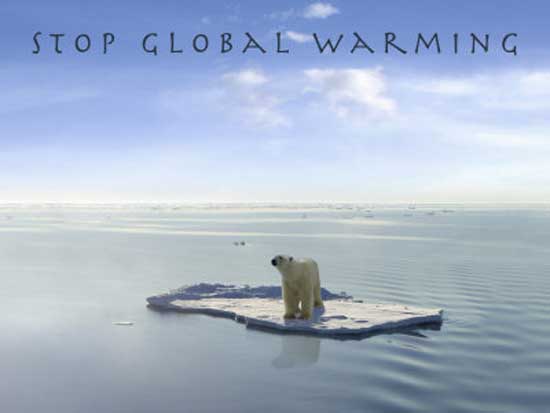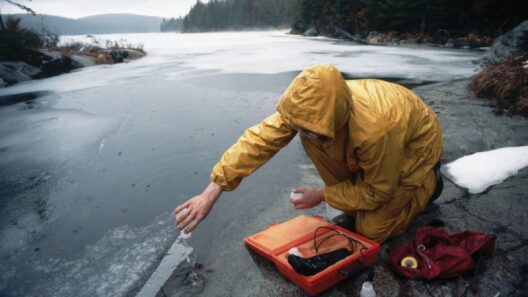Global warming is one of the most pressing challenges facing humanity today. It is not just a distant threat; it is an urgent reality that requires immediate action. This phenomenon, primarily caused by the increase of greenhouse gases in the atmosphere, leads to adverse effects such as rising sea levels, extreme weather events, and ecological disruptions. However, individuals have the power to make a significant difference. The key to combating global warming lies in collective action—everyone can contribute to a healthier Earth.
To galvanize the movement against global warming, it is crucial to understand various approaches that individuals can adopt. Each action, no matter how seemingly trivial, can contribute cumulatively to a substantial impact.
1. Reduce Energy Consumption
One of the fundamental ways to combat global warming is by reducing energy consumption in daily life. Simple actions like turning off lights when leaving a room, using energy-efficient appliances, and incorporating smart home technologies can significantly decrease household energy use. Opting for LED bulbs rather than incandescent ones can yield substantial savings. Additionally, consider adopting renewable energy sources such as solar panels, which harness energy without contributing to greenhouse gas emissions.
2. Advocate for Sustainable Transportation
The transportation sector is a major contributor to carbon emissions. Transitioning from fossil fuel-based transportation to greener alternatives can help mitigate this issue. Carpooling, using public transportation, biking, or walking when feasible can substantially reduce individual carbon footprints. Electric vehicles (EVs) have surged in popularity, and their adoption is pivotal in promoting sustainable transit systems. Additionally, advocating for policies that encourage infrastructure development for cycling and walking can foster a culture of sustainable commuting.
3. Modify Dietary Habits
The food choices individuals make have profound implications for the environment. The meat and dairy industries are among the top contributors to greenhouse gas emissions. Transitioning to a plant-based diet or reducing meat intake can markedly lower one’s carbon footprint. Furthermore, supporting local agriculture by purchasing locally sourced produce minimizes transportation emissions and fosters sustainable farming practices. Emphasizing seasonal foods also helps sustain local ecosystems while ensuring fresher, nutritious options.
4. Champion Waste Reduction
The linear model of take-make-dispose is unsustainable. Minimizing waste through practices such as recycling, composting, and opting for multi-use products can significantly alleviate the burden on landfills and reduce emissions associated with waste processing. Engaging in upcycling projects can repurpose materials that would otherwise contribute to waste. Additionally, advocating for policies that promote circular economy principles can foster broader community engagement in waste reduction.
5. Support Conservation Efforts
The preservation of existing natural habitats is critical to combating global warming. Ecosystems act as carbon sinks; thus, protecting forests, wetlands, and wildlife is vital. Join local conservation groups or participate in activities such as tree planting, habitat restoration, and wildlife protection. By actively participating in conservation efforts, individuals can contribute to biodiversity preservation while simultaneously aiding in carbon sequestration.
6. Encourage Policy Changes
Grassroots movements have the power to effectuate significant legislative changes. Supporting policies that restrict carbon emissions, promote renewable energy initiatives, and fund climate research is essential. Attending town hall meetings, engaging with local representatives, and using social media platforms to advocate for climate policies can amplify individual voices in the larger political landscape. Organizing or participating in community forums provides an excellent platform for raising awareness and discussing actionable climate solutions.
7. Educate and Engage Your Community
Knowledge is power. Disseminating information about global warming and its impacts can help mobilize communities to take action. Organizing workshops, lectures, or community clean-up events can foster a sense of urgency and inspire individuals to join the fight against climate change. Collaborate with local schools to integrate environmental education into curricula, thereby nurturing a generation aware of their ecological responsibilities.
8. Leverage Technology
In an increasingly digital world, technology plays a pivotal role in combating climate change. Leveraging apps and online platforms that assess carbon footprints can help individuals understand their impact and make conscious changes. Innovations in technology such as smart grids, electric public transportation systems, and green building solutions provide eco-friendly alternatives that enhance energy efficiency. Participating in technological forums or supports startups focused on climate innovations can lead to larger systemic changes.
9. Foster Sustainable Business Practices
Businesses contribute significantly to greenhouse gas emissions. As consumers, individuals can influence corporate behavior through purchasing choices. Support companies that prioritize sustainability, whether through eco-friendly packaging or fair labor practices. Engaging in dialogue with businesses regarding their environmental policies can encourage them to adopt more sustainable practices. Alternatively, if you are an entrepreneur, integrating sustainable practices into your business model can contribute to the broader movement.
10. Engage in Global Initiatives
Global movements like the Paris Agreement illustrate the importance of international cooperation in addressing climate change. Joining global campaigns, participating in climate strikes, or supporting organizations focused on climate action fosters a sense of solidarity. By operating on a global scale, collective voices can pressurize governments to prioritize climate change on their agendas.
As the effects of global warming become increasingly observable, individual actions are indispensable in shifting the trajectory of our planet’s future. By embracing sustainability in daily practices, advocating for policy changes, and engaging the community, everyone can be part of the movement for a healthier Earth. Remember, every step counts, and together, collective efforts can herald a new era of environmental stewardship.






